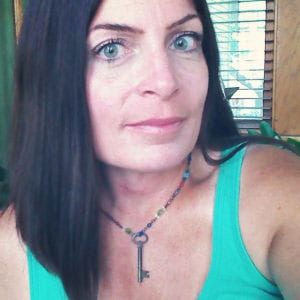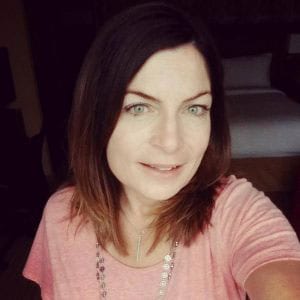This is outstanding:
However, be prepared because what I am about to say may not be popular, but it’s my truth.
It breaks my heart that adults with rare disease seem to go by the wayside so often.
In November of 2014, I was approached, and personally asked to participate in this exhibit. I was specifically asked if a photo of me in a neck brace could be used. At the time, I saw nothing wrong with this. I was honored to be asked. Yes, this is the face of rare disease. I sent a collage of several photos (pictured above), to narrow one down. I was told I look unnatural. What? Ok, um, read about Klippel-Feil syndrome and get back to me on that. I sent another photo (below).
 I was told it was too close up, and I was looking into the camera. What? But now, in the video, I see plenty of pieces that were originally photos, of kids close up, looking into the camera.
I was told it was too close up, and I was looking into the camera. What? But now, in the video, I see plenty of pieces that were originally photos, of kids close up, looking into the camera.
Recently, I was told that the focus changed to kids, because it’s tragic to see children suffer and die. Ouch. Yes. Why would anyone assume that I don’t understand that, feel that, care, and have heartbreak over this, when I advocate for us every day? I don’t discriminate based on age, race, or disease.
I don’t discriminate based on age, race, or disease.
I could never fathom saying “you look unnatural” to anyone, let alone someone suffering with a rare disease. I have shed many tears due to the loss that rare disease causes. I put forth effort to end this, because this affects me, and those I have come to know, a great deal.. I recently went and spoke to my federal representative to speak to the need for the 21st Century Cures bill. I wrote and sent letters, on behalf of all of us.
So, I care. Probably too much. I know the statistics by heart. I am living in a body with 5 rare conditions, and some others that are rare, that for me are secondary in needing attention, compared to the bigger ones, so I don’t even mention their names. This is very personal. I have lost both young and adult friends, time and time again, due to rare disease. I have wept. I’ve sobbed in low haunting moans, and hot, painful tears. I have spent countless days and nights saying “Why?”, and not just for me, but for all of us.
I have been advocating as an adult rare disease patient since the day I was finally, after a lifetime of various issues, at age 38, diagnosed with Klippel-Feil syndrome. The diagnosis caused pieces of the mysterious puzzle seemed to fall into place in some ways, and fall apart in others. I already had a rare diagnosis of Vasculitis and a wavering diagnosis of Von willebrand disease. Within the following 6 years I was diagnosed with Ehlers-Danlos syndrome, Cervical Dystonia, and Eagles syndrome. I became a steadfast advocate for rare disease, namely for Klippel-Feil syndrome because it is the hub for various associated conditions, and has had little support, research, answers or hope.
Many adults, who have dealt with countless lifelong issues, are not diagnosed until later in life.This isn’t because adults had no issues, and then suddenly they did. This is because it went undiagnosed, undetected, or misdiagnosed, for years. Decades. There is an overwhelming sense of desperation when you or your loved one has a rare disease, no matter what age you are!
Adults with rare disease also suffer and die. We have a face! Our faces may be imperfect, with scars, paralysis, famished, waterlogged, shaved heads, dark circles, rashes, bags, wrinkles, and more, because we too, are fighting! We’ve been fighting, first hand, for the long haul.
Adults have a different set of challenges, but we are often treated like the ugly step children of rare disease.
This is not the first time I have been asked to participate and then been dismissed, or I’ve invested my time, or provided something, as an adult rare disease patient advocate, that has been cut out in lieu of a parent’s voice, or a cute, innocent child’s image. This is wrong. Why are you asking me, if I don’t meet the criteria? If someone who has 5 rare conditions does not meet the criteria for a rare disease cause, something is very wrong. This is setting a tone, that the adult with rare disease and/or their advocacy efforts are less than a child’s, or their parents. This article is not about the notion that kids are cute and innocent and bring in more funding – I get that concept, but I don’t agree with it. That’s another topic. This is about the first hand adult rare disease experience being considered 2nd, if not 3rd in precedence, when it must be equal for all patients. The person with a rare disease actually does come before anyone else, when the cause is rare disease. Newsflash: We are the primary reason for the cause. I am so upset by this, that I think Dystonia is going to strangle me.
I was fearful to write this because inevitably, someone will say that I don’t comprehend or know what it is like to walk in a parent’s shoes, or anyone who has lost a child due to rare disease. I know that neither you nor I, would ever dismiss the fact that 30% of children do not make it to their 5th birthday. There is no question that this is an astounding, heart wrenching problem that can’t be remedied fast enough. We are deeply affected by this as patients, and as caring men and women. No, I can’t speak first hand for the heartbreak of losing a child. I would never think of doing that, as a sensitive compassionate person who has been dedicated to this cause. I am in no way dismissive of these experiences. I have empathy and respect for parents – I am on your side. But that is not my point here.
Adults with rare conditions are the dismissed 50%.
Adult rare disease patients must be treated with respect and inclusion. Everyone with a rare disease should be considered equal, regardless of age. This is a no-brainer. If the cause is for rare disease, then include everyone with a rare disease first! Start setting the precedent of inclusion today. Yes, adults with rare diseases are flawed, tired, old, fat, skinny, etc. We are war-torn. We are in these faulty bodies. We’re often trying to be productive in some form, and function, at whatever our greatest capacity may be. We have such a hard time finding care, being respected, and treated well, don’t dismiss us, please. My heart is a big pounding knot over this.
To be clear, I am not lessening the impact or loss that rare disease has on infants and children. I am exposing that the situation for adults with rare disease is very different, but we are equals. I am speaking to that. Many kids with rare disease will become adults. This is a real issue when a child turns 18, and their care, needs, and responsibilities change dramatically. Adults with rare disease have experience and knowledge that is second to none. For example, we are the one who is sick. We don’t have the healthy energy to fight in the same way. We don’t have someone to back us up, or speak for us when we are too ill, upset, exhausted, frustrated, unable, etc. Adults are not cute and innocent. We must learn a lot of self-care skills. We are not met with compassion.
We did not cause our rare conditions, but we are treated far differently than someone diagnosed with cancer. Traveling or getting to specialists, often across the country, is an obstacle. Once we arrive, we are often met with the most atrocious responses at the doctor’s office. For rare conditions that are degenerative, it is when we are teens and adults that we need the most care, and find the least. We are disabled or become disabled. We lose careers and our livelihood. We lose friends. We suffer an entirely different financial impact. These are just a few examples of what we face, as self-advocates, while trying to care for ourselves. Our adults are in a most frustrating, suffering space, that very few know about, or focus on. There is a rare disease wasteland of sorts for our adults.
There is a rare disease wasteland of sorts for our adults.
Further, not many adults have the physical, or any number of strengths, time, ability, or desire, to also advocate for the rare disease community as a whole. Why would we? When we do, we so often land on the chopping block. The focus is typically on children, but not adults. Just because this happens it doesn’t make it right. As an advocate for rare disease for years now, and disabilities (more recently), the same thing holds true. adults are not less than, we are equals. We should be treated as such. We have an entirely different set of circumstances that are valid. Yet we must be silent? No. I’m not cool with saying, that’s just how it is. The depths of my heart tell me that’s wrong, and it’s ok to say so.
Everyone with a rare disease is equal regardless of age, race and condition. Don’t cut out the 50% – adults. Organizations founded to help those with rare disease must keep this on the forefront, and function accordingly throughout everything they do. Otherwise, you are missing the point.
 About the Author: Sharon Rose Nissley has several rare conditions including Klippel-Feil syndrome, Ehlers-Danlos Syndrome, Cervical Dystonia and Vasculitis. She is a patient advocate for rare disease and founded Klippel-Feil Syndrome Freedom to help those who have this rare, congenital musculoskeletal condition and their families. “I just want to help those affected by rare disease, and empower our community to dig in, learn,and ask for what we need.”
About the Author: Sharon Rose Nissley has several rare conditions including Klippel-Feil syndrome, Ehlers-Danlos Syndrome, Cervical Dystonia and Vasculitis. She is a patient advocate for rare disease and founded Klippel-Feil Syndrome Freedom to help those who have this rare, congenital musculoskeletal condition and their families. “I just want to help those affected by rare disease, and empower our community to dig in, learn,and ask for what we need.”Follow her on Twitter: @Rose _of_Sharon8, @KFS_Freedom and Instagram: @Rosiegal8, @kfs_freedom


